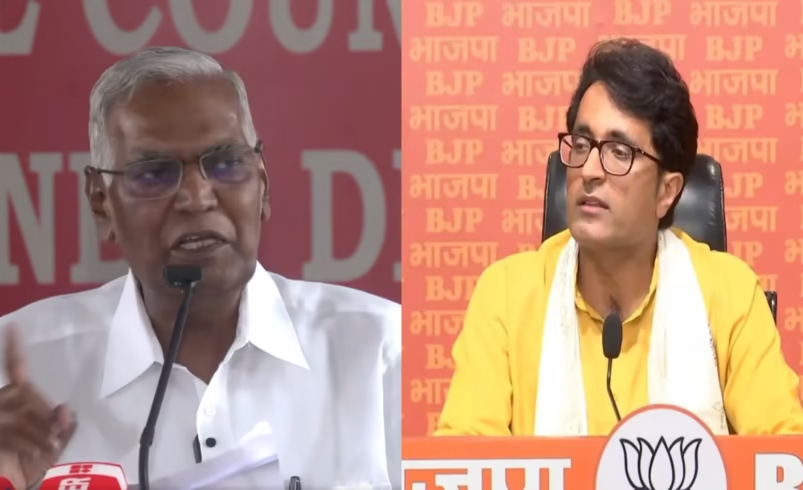BJP counters CPI and Congress over Naxal operations debate
- September 30, 2025
- 0

The political debate over India’s approach to tackling Naxalism has intensified after sharp exchanges between the Bharatiya Janata Party (BJP) and opposition parties. The dispute emerged following remarks by Communist Party of India (CPI) general secretary D Raja, who questioned the government’s “Naxal mukt Bharat” initiative and called for dialogue with Naxal groups. His comments drew a strong response from the BJP, which accused both the CPI and Congress of undermining national security by allegedly sympathizing with Maoist violence.
In his statement, CPI leader D Raja argued that the government’s campaign to eliminate Naxalism should not rely solely on military or security operations. Instead, he urged authorities to engage in talks with Naxal groups, suggesting that dialogue could address underlying issues fueling insurgency. He also criticized what he described as the BJP’s broader political agenda, framing it as counterproductive to resolving long-standing conflicts in affected regions.
The BJP responded forcefully to Raja’s remarks, accusing the CPI of aligning itself with extremist elements. Party leaders alleged that by questioning the “Naxal mukt Bharat” initiative and advocating negotiations, the CPI was effectively supporting Maoist violence. The BJP further extended its criticism to include Congress and other members of the INDIA alliance, branding them as part of what it described as a “tudke tudke gang” that compromises internal security for political gain.
Although D Raja’s comments were made on behalf of the CPI, the BJP linked Congress to the controversy by highlighting its partnership within the INDIA alliance. According to BJP leaders, Congress shares responsibility for what they view as a lenient stance toward extremist groups due to its association with left-leaning allies. This accusation adds another layer of friction between ruling and opposition parties at a time when security concerns remain a sensitive subject in national politics.
The exchange underscores a broader divide in Indian politics over how best to address insurgency movements like Naxalism. While some argue that dialogue is essential for long-term peace, others insist that firm security measures are necessary to protect citizens and maintain order. The “Naxal mukt Bharat” campaign has been positioned by its supporters as a decisive effort to end decades of violence in affected areas, but critics continue to question whether military operations alone can resolve deep-rooted socio-economic grievances.
The clash between BJP and opposition parties highlights how internal security issues often become entangled with electoral politics and ideological battles. By framing rivals as sympathetic to extremist causes, the BJP seeks to portray itself as the sole defender of national integrity. Meanwhile, opposition parties argue that sustainable peace requires more than force, pointing instead toward dialogue and development-based solutions.
The latest confrontation reflects ongoing tensions within India’s political landscape over how best to balance security imperatives with democratic engagement. As debates around insurgency continue, both sides are likely to use this issue as a platform for advancing their broader political narratives while vying for public support across diverse constituencies.